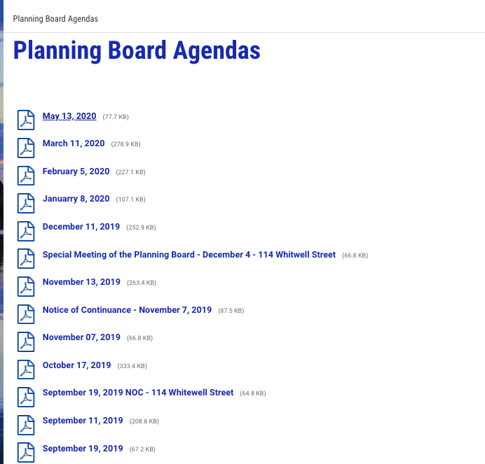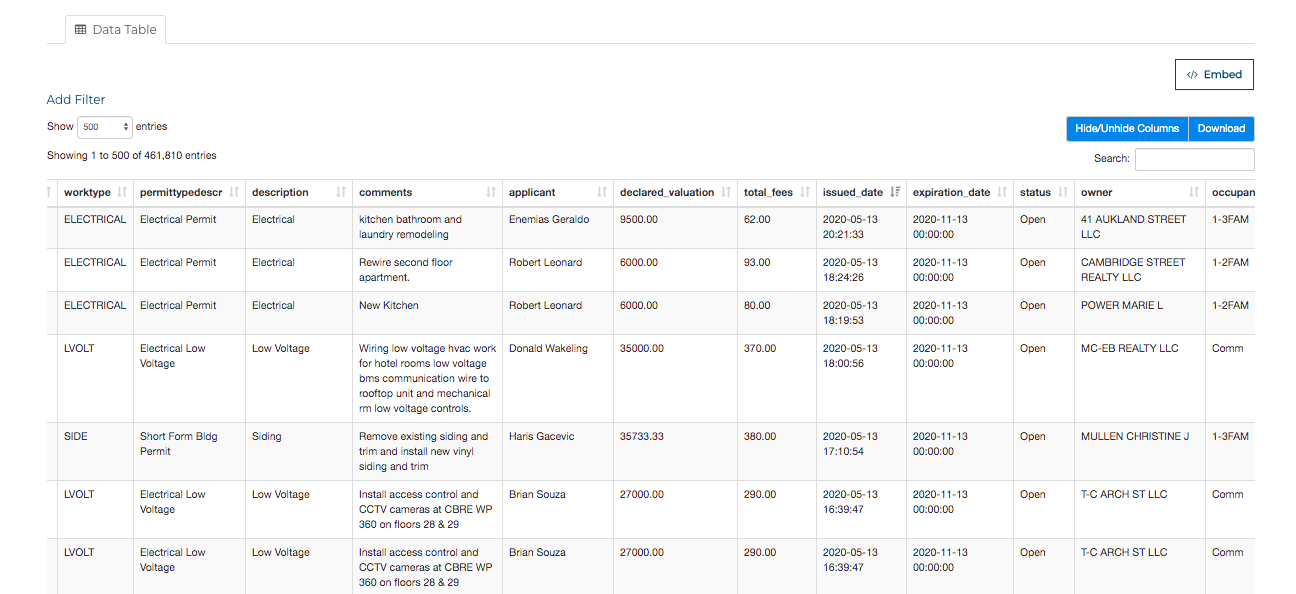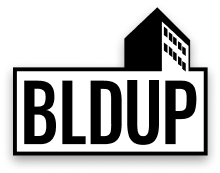As the COVID-19 crisis continues to play out, Boston has seen a decline in for sale listings however with the state planning a phased re-opening and construction starting back up again in Boston later this month, the typically busy spring housing market, maybe pushed to summer. For brokers out there looking to work with developers on new construction projects, we examine the process of how you may go about finding who is building condos in your area. There are developers out there right now working on projects who have yet to select a broker or they are not feeling that great about the brokers they use. You have an opportunity to find these developers and sell them as to why they should work with you. But where do we start?
Within Boston, we can consider ourselves somewhat lucky to be able to visit the BDPA planning site for information on large or medium size projects. The site does allow for some filtering by neighborhood and project status however you then need to dig through several different PDF documents to find developer contact information and meaningful details on each project. If you are not looking for projects in Boston, but say Quincy perhaps, you would need to go through planning board meeting minutes and agendas to find projects under review or approved. After this task, you could then visit the city’s permitting website to check if permits had been pulled to start construction. Maybe you even take a quick drive-by the property to see if construction is in fact underway and how far along the project is. Let’s also not forget you may need to make a quick visit to the Massachusetts Secretary of State website as well to look up the owner information behind any LLC’s that are listed on these documents you have found.
 Scrolling through planning board agendas, like these in Quincy, can help brokers find approved development projects, but is a time-consuming process.
Scrolling through planning board agendas, like these in Quincy, can help brokers find approved development projects, but is a time-consuming process.
Data on smaller projects in development ranging in size from 2-10 units can be found via permitting websites. Let’s look at Boston for example, here the search feature is very limited and unless you know an exact project you are you looking for, you would need to scroll through a large pile of data each day to find any interesting projects. Building sales could also be a flag of potential development, these records can be found via the Mass Land Records website but again unless you know a name or address you are searching for reviewing these records would be an overwhelming task. A quick glimpse into the Boston permitting website shows the large amount of data pouring through the site each day. Permits not only include new construction but office fitouts, small home renovations, and countless other construction activities that would be of no interest to a residential broker.
A quick glimpse into the Boston permitting website shows the large amount of data pouring through the site each day. Permits not only include new construction but office fitouts, small home renovations, and countless other construction activities that would be of no interest to a residential broker.
Once a potential lead is found, brokers need to bring value to the table by market knowledge. Most firms have the wherewithal to create glossy marketing materials and stage a beautiful home however examining the current market conditions and pricing units right is key. Some brokers may even be involved in planning unit sizes and layouts, to assist developers in appealing to target demographics within a given area. This requires market research on sales and comps coming to the market near the project. Given the uncertainty around today’s market up to date knowledge will be key in securing relationships with developers.
Here are 5 things you can do to get developers to take your call and actually listen to you!
- Add value: Have you ever heard of the saying that givers gain? Figure out a way that you can give to developers. Right now developers are worried like the rest of us. Should I build this project? Should I sell the entitlements? Should I go with a different bank? Should I do apartments or condos? There are a lot of questions they are trying to answer. Help them answer them. For example, this is how I might approach a developer and lead with value. Hi Mr. Developer, I noticed you just got approved on your 20 unit project in Somerville. It looks like you are going to have apartments (FYI most developers will go for apartments first because it’s much easier to revert to condos from apartments than condos to apartments. The local neighborhoods want home-owners and not renters typically and if the project works as apartments the banks are much happier too). I pulled a report of how many apartments are under construction and in pipeline along with the inventory that is currently available on the market. There is about x amount of apartments in the market. Typically it’s Y. (Give your point of view on this) Given that there is less coming to the market I think your rental price was probably $1500 for the 1 beds but you could probably get $1800 for the 1 beds 6 months from now when you start leasing.
This is giving the developer insight into his own market while adding value through your professional point of view and helping him to make more $. If you can demonstrate to the developer how they can make more money with you they will listen. - Bring them interested clients: Go find people that want to move to where the developer is building, get them as clients, and bring them to the developer. (Another form of adding value)
- Talk cost per sq ft of construction-: Figure out the cost of square foot of construction for the area and find GC’s that are reputable and will do it for less. There are plenty of GC’s out there that are looking to grow their business. We spoke with a developer recently who was getting pricing at $315 sq ft and we brought him a GC who could do it for $225 a sq ft. On a $15million project, that’s a lot of money that can be saved. Bring them more affordable GC’s and they will definitely listen.
- Get a financial broker relationship: Find a financial broker like Finance Boston that are experts in debt in equity as it relates to development. Developers are always looking to save money and many of them are using hard money lending (quick loans but higher rates) at ~12%. What if you introduced them to a savvy broker that was able to cut that rate in half and do it just as quickly as the hard money lenders (this can be done).
- Digital Marketing: Most developers don’t have a clue about digital marketing and need a savvy broker to help them. How are you standing out as it relates to digital marketing? It is not enough to rely on your company to handle the marketing for you. Educate yourself on the latest and greatest best practices on digital marketing. Podcasts are a great way to do this. Some great digital marketing podcasts are The Marketing School, Perpetual Traffic, and Gary Vee. Be an expert on how to sell in a digital world!
For brokers already busy handling current listings and clients while finding new ways to sell properties virtually accessing these numerous public record sites and compiling the data necessary to find and pitch new developers may seem a daunting task. To save valuable time, BLDUP’s In The Know platform has all this data in one place, easily accessible and sortable. Pull a list of approved projects with under 30 condo units, add developer contact information, and export to an excel file, ready for outreach. Land a meeting with one of these contacts, pull a list of other developments upcoming in their neighborhood, sort by size, start date, and your market research is now nearly complete. Want more information on how In The Know can help you find new developers, schedule a demo here.
